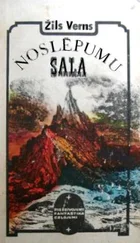Perhaps something neutral, alabaster or beige. Or linen. No, not warm enough. Maybe peach? The possibilities were overwhelming.
I sat down at the screen and pulled up the inventory of a couple of decorating shops. There were little tables that showed you how to work out how much paint you’d need. I did that. Decided I could afford it quite handily. Except I’d forgotten all the brushes and dustcloths and cleaning fluid and trays… I added it up again. Still manageable.
But then I looked at the walls again, at the kitchen, the bathroom, the steep stairway and complicated gables over the bed. I’d never picked up a brush or spray gun in my life. Where would I start?
Maybe Tom could help? But he was old. The only other people I knew were Spanner, and my shift at Hedon Road, and I couldn’t, wouldn’t, ask them.
Or there were Ruth and Ellen.
I remembered that interview with my mother on the net. How do you persuade employees or team partners to take on such difficult projects? the interviewer had asked.
Easy, she said. People love to be asked to help.
Easy.
It took twenty minutes pacing the living room before I could bring myself to tap in their number.
Ruth answered. The tendons down each side of her neck tightened for a second when she saw me, but she managed a guarded smile. “Lore. What can I do for you?”
“I just got paid. And I know we agreed to have dinner sometime, the three of us, but I wondered if I could impose on you for some help instead. My flat needs decorating and, well, I don’t know how. I thought maybe you could give me, ah, some advice. If you’ve ever done it yourself. I mean, I’ve never even bought paint before.”
She was looking puzzled. “You want me and Ellen to come help you choose paint.”
“Essentially, yes.”
She smiled, and this time the skin around her eyes stretched. “You’re settling down, then?”
“Yes. The flat’s nice, except for the color. And the temperature. I think it’ll be cold in a month or so.”
“Then you’ll need Thinsulate paper for all the outside walls. Have you thought about colors?”
“You’ll help, then?”
“Of course we’ll help! Why don’t you bring the measurements and samples and things round and we’ll have dinner.”
Dinner. “When?”
“The weekend.”
I grinned at her so hard I think there were tears in my eyes. “The weekend would be wonderful.”
Lore is seventeen. Her final exams are done. Two weeks before the end of her last term at school, her mother calls.
“Are you ready to leave that place yet?”
Lore grips the table beside the screen. “You’ve decided? You’ll let me do it?”
“I’ve decided. I’ll let you do it.”
“Complete control?”
“No. You’ll be Marley’s deputy.”
“But—”
On-screen, Katerine holds up her hand. “Marley has graciously agreed to let you co-lead, unofficially, but I can’t justify giving you complete control of such a high-profile project.”
“High-profile? The Kirghizi project?”
“It is to the Kirghizians.”
And now Lore grins. Second-in-charge of a huge project. The one she has been waiting for. “When are we scheduled to start?”
“Our contract with the Kirghizian government is valid as of this afternoon. I suggest you talk to Marley. And Lore, don’t screw up.”
Lore packs, hands shaking—partly from a fierce exhilaration, partly from nerves. Ever since the company started bidding on this project she has had her heart set on it. She has disk after disk of plans, all ready to go. Working with Marley will not be too bad; she usually gets on well with her uncle’s husband. He’ll let her use some of her ideas, surely. She leaves without a backward glance, for the school, but she takes a taxi ride past the sex club for old times’ sake. She thinks briefly of Anne, the first one. She will never come here again. She will probably never use a sex club again. There is no need.
Lore makes several overflights of the Kazakhstan region three hundred miles north of the Aral Sea. The area is suffering from the Soviet Union’s disastrous attempts in the middle of the last century to turn the sun-drenched deserts of Uzbekistan, Tajikistan, Turkmenia, and Kirghizia into a vast cotton monoculture. The Aral Sea, once the largest body of water in Central Asia, is beyond immediate salvation. The Soviet regime drained the inland sea of two-thirds of its volume, diverting its sources, the Amu Darya and Syr Darya, into thousands of miles of irrigation canals and ditches crisscrossing the new fields of cotton that stood where once there had been only arid steppe. Muynak, once the Aral’s largest fishing port, now stands forty-five miles from the water’s edge. Rusting hulls of abandoned vessels and barges line what was once the shore. When Lore orders the copter lower, she sees that many of the hulks have been scavenged for the metal.
The family has won the first of the multilevel, forty-year programs: to clean up the water table of Kirghizia and route the clean water back to the Aral. Marley has suggested that her initial brief should be the fertilizer, pesticide, and defoliant pollution resulting from wholesale crop spraying throughout the nineteen sixties, seventies, and eighties. He will deal with the biological contamination—bacteria, viruses, parasites, and algae. If she has any questions, all she has to do is ask. And he, of course, will have to approve any requisitions over ten million.
They are sitting in Marley’s project tent, which is actually a collapsible three-room stretch dome. Marley is drinking green tea, looking as sleek as a spaniel. Lore is impatient to get started. “What’s our plant and equipment budget?”
“One hundred and twenty million.”
“That’s not enough…” She thinks hard. “Labor?”
Marley smiles. His teeth are beautifully white. “I wondered how quickly you’d catch that. Almost one hundred million.”
Lore laughs out loud. “Then all we have to do is swap sixty or so from one to the other. Once we’ve got everything functioning, we don’t need much maintenance. Labor costs will be minimal.”
“Ah, but don’t forget that projects like this, for small countries, are as much about politics as pollution.” He raises his eyebrows, sips.
“I don’t understand.”
“Jobs.”
Lore sighs. Jobs. People. Votes. Much harder to deal with.
“However, that does not make the problem insurmountable. If you take the time to examine your budget sheet—”
“I’ve only just got here.”
“I wasn’t criticizing. If you take a look, you’ll see there’s a two million set-aside, labeled ‘misc.’ Some project leaders will use that as an emergency reserve, some will use it as a carrot in the form of bonuses to their labor force, others will use it in discreet bribes to local officials. Whatever is most expedient.”
“And you know some amenable local officials?” Lore is realizing that reality is not the same as designing systems on her screen. She is glad she is only the deputy.
“Let’s just say I know of them.”
“And you’ll… soothe their worries and smooth their palms?”
“No. You will.”
Lore knows she has asked for this responsibility. She also knows that her mother would not have given it to her if she was not ready. She does not feel ready, but she grits her teeth and begins.
She sweeps the minister for labor and the commissar of the treasury up in a whirl of lunches and dinners, gifts them with the latest in personal transport technology, and even gets one of her assistants to find the male minister a female companion. All the time that she nods and smiles and soothes and explains, while she dabs at her mouth or takes another sip of champagne, she frets. She wants to be working, to be building something, seeing her ideas take shape.
Читать дальше












